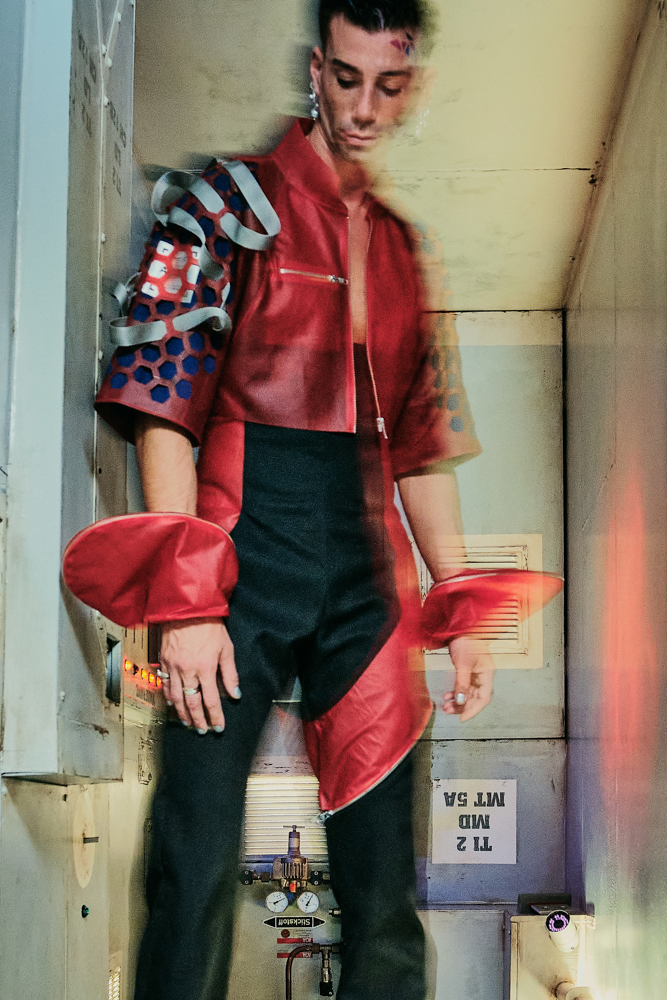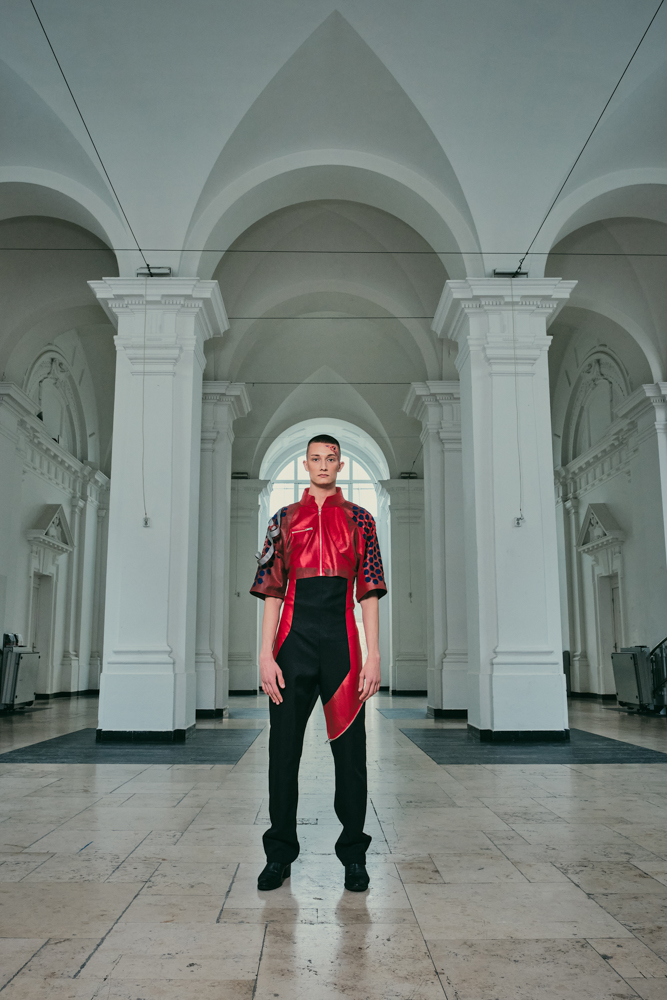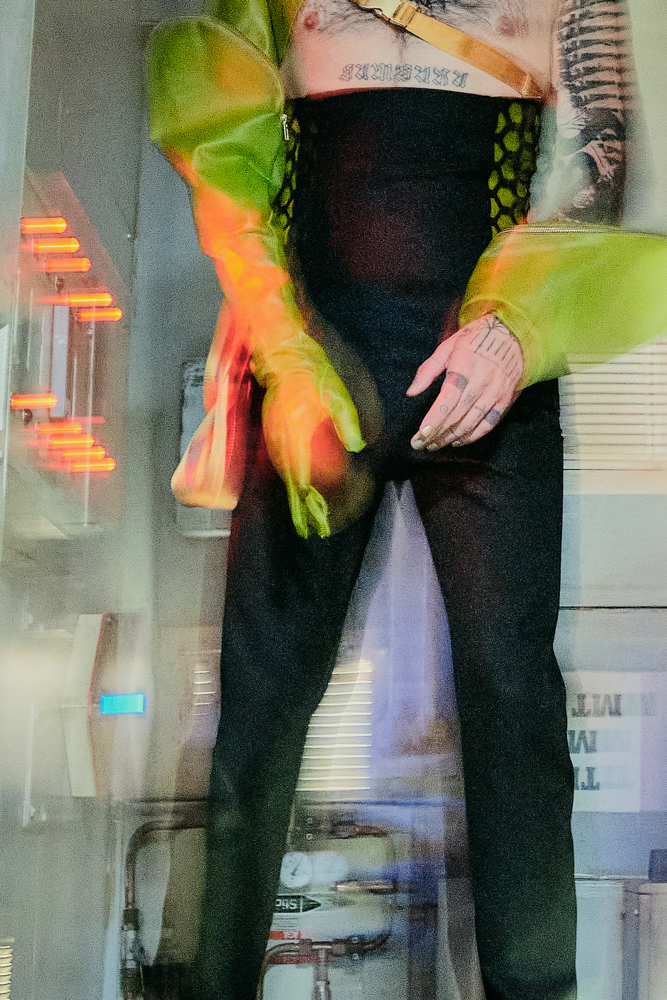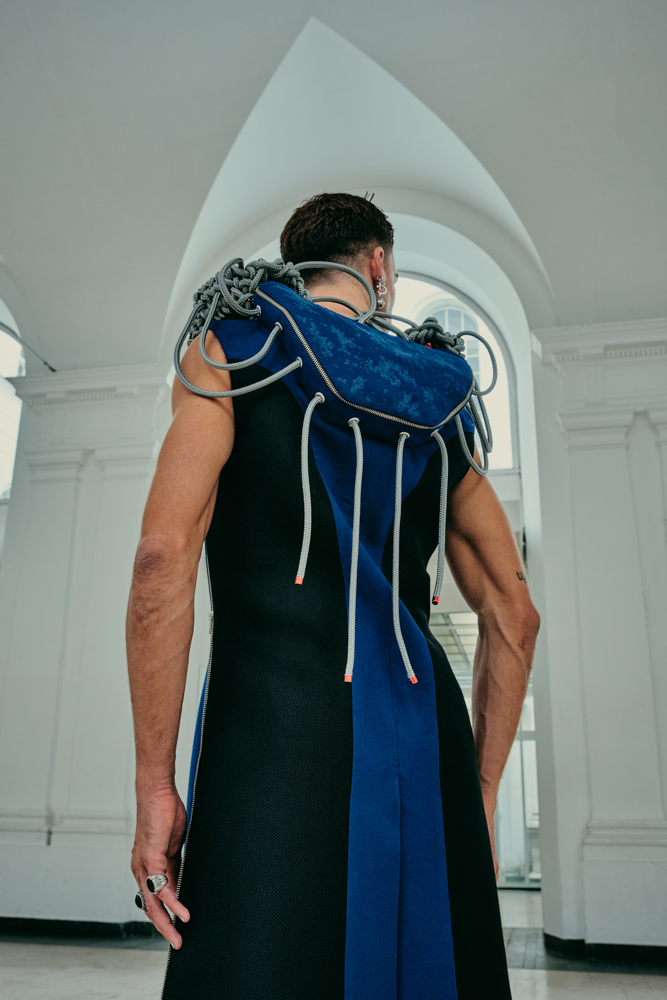Alessandro Gentile | BACHELORARBEIT 2021
Im Rahmen meiner Abschlussarbeit habe ich mich mit dem Thema der toxischen Männlichkeit im Kontext der Mode, der Videogames und des Militärs beschäftigt.
Im Wandel der letzten 10 Jahre haben sich zunehmend neue Schnittstellen dieser drei Elemente kreiert. Videogames haben heute in der westlichen Gesellschaft eine viel größere Relevanz als vor einigen Jahren, weil die angeblich verpönten kindlichen Videogamespieler_innen von damals heute ein wichtiger Bestandteil der Gesellschaft geworden sind. Wo einmal Videogames vollkommen Fehl am Platz waren, sind heute immer mehr zu sehen, auch in der Mode.
Allerdings bringen Videogames eine ganze Menge hypermaskuliner, toxischer Werte mit sich. Auch wenn es nicht die einzigen darin enthaltenen Werte sind, sind die Bilder der modernen Videogames überfüllt mit militärischen Machos, die für ihre Gefühllosigkeit und “heldenhafte” Gewaltausübung verherrlicht werden.
Die Vertretung dieser und die Identifikation mit diesen Werten seitens der Männern sowie die Vermarktung durch weitere Männer beruht auf einem bestimmten gesellschaftlichen Konstrukt: der Vorstellung, dass ein Soldat die höchste Form eines Mannes sei .
Doch obwohl dieses Ideal nur ein Konstrukt ist, werden Männer so aufgezogen als wäre es das Natürlichste, wonach sie streben könnten. Selbst wenn man sich dessen bewusst ist, dass das ein toxisches Konstrukt ist, kann das trotzdem Teil der eigenen Identität und nicht komplett veränderbar sein.
So stellte ich mir die Frage: Wie kann ein Mann sich von diesen Werten distanzieren und trotzdem mit dem leben, was das Patriarchat aus ihm für einen Menschen gemacht hat?
Durch meine Recherche habe ich verschiedene Ambivalenzen und Inkohärenzen, die in dem hegemonialen Männlichkeitsbild, insbesondere im Militär, präsent sind, gefunden.
Diese sind dann Bestandteil der Kollektion geworden. Man trägt also diese Inkohärenzen nach außen, um bewusst dieses toxische Konstrukt auseinander zu nehmen und sich gleichzeitig mit der eigenen Identität wohlfühlen zu können.
In my graduation work I dealt with the topic of toxic masculinity in the context of fashion, videogames and military.
In the transition of the last 10 years, new intersections of these three elements have increasingly been created. Videogames have a much greater relevance in western society today than they did a few years ago, since the supposedly frowned-upon childish videogame players of the past have become an important part of society today. Where once videogames were completely out of place, they are seen today more and more, even in fashion.
However, videogames bring with them a whole lot of hyper-masculine, toxic values. Even if that’s not all that can be found in them, the images of modern videogames are overflowing with military machos glorified for their insensitivity and „heroic“ use of violence.
The representation and identification with these values on the part of men, as well as the marketing to them on the part of, yes, actually other men, is based on a certain social construct: the idea that a soldier is the highest form of a man.
Yet even though this ideal is only a construct, men are raised as if it were the most natural thing they could aspire to. Even if one is aware that this construct is toxic, it can still be part of one’s identity and not completely changeable.
So I asked myself the question, how can a man distance himself from these values and still live with what patriarchy has made of him?
Through my research I found various ambivalences and incoherencies that are present in the hegemonic image of masculinity, especially in the military.
These then became part of the collection. So one carries these incoherencies to the outside, to consciously take apart this toxic construct and at the same time to be able to feel comfortable with one’s own identity.
Betreuer*innen : PROF. VALESKA SCHMIDT-THOMSEN, Prof. Wowo (Waldemar) Kraus, PROF. DR. INGEBORG HARMS
Credits:
Direction Editorial: Alessandro Gentile
Fashion Design: Alessandro Gentile
Photography: Marco Lombardi
Hair and Make-Up: Elisa Sankowski
Models: Niklas Jeroch, Emanuele Corsini, Timo Thomalla (Faze Models), Alessandro Gentile




